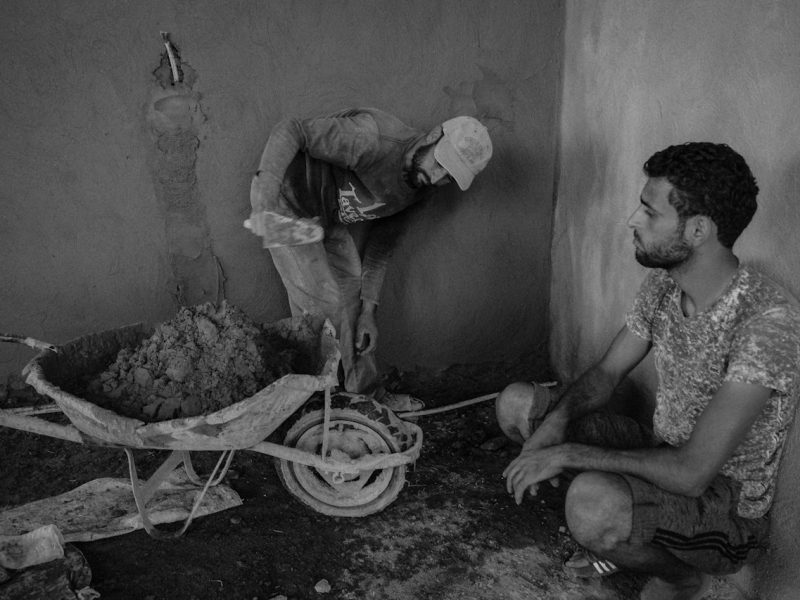[…]
4. Political vices
Sadly, together with its virtues, politics also has its share of vices, whether due to
personal incompetence or to flaws in the system and its institutions. Clearly, these
vices detract from the credibility of political life overall, as well as the authority,
decisions and actions of those engaged in it. These vices, which undermine the ideal
of an authentic democracy, bring disgrace to public life and threaten social harmony.
We think of corruption in its varied forms: the misappropriation of public resources,
the exploitation of individuals, the denial of rights, the flouting of community rules,
dishonest gain, the justification of power by force or the arbitrary appeal to raison
d’état and the refusal to relinquish power. To which we can add xenophobia, racism,
lack of concern for the natural environment, the plundering of natural resources for
the sake of quick profit and contempt for those forced into exile.
[…]
6. No to war and to the strategy of fear
A hundred years after the end of the First World War, as we remember the young
people killed in those battles and the civilian populations torn apart, we are more
conscious than ever of the terrible lesson taught by fratricidal wars: peace can never
be reduced solely to a balance between power and fear. To threaten others is to lower
them to the status of objects and to deny their dignity. This is why we state once
more that an escalation of intimidation, and the uncontrolled proliferation of arms, is
contrary to morality and the search for true peace. Terror exerted over those who
are most vulnerable contributes to the exile of entire populations who seek a place
of peace. Political addresses that tend to blame every evil on migrants and to deprive
the poor of hope are unacceptable. Rather, there is a need to reaffirm that peace is
based on respect for each person, whatever his or her background, on respect for
the law and the common good, on respect for the environment entrusted to our care
and for the richness of the moral tradition inherited from past generations.
Our thoughts turn in a particular way to all those children currently living in areas of
conflict, and to all those who work to protect their lives and defend their rights. One
out of every six children in our world is affected by the violence of war or its effects,
even when they are not enrolled as child soldiers or held hostage by armed groups.
The witness given by those who work to defend them and their dignity is most
precious for the future of humanity.
7. A great project of peace
In these days, we celebrate the seventieth anniversary of the Universal Declaration
of Human Rights, adopted in the wake of the Second World War. In this context, let
us also remember the observation of Pope John XXIII: “Man’s awareness of his rights
must inevitably lead him to the recognition of his duties. The possession of rights
involves the duty of implementing those rights, for they are the expression of a man’s
personal dignity. And the possession of rights also involves their recognition and
respect by others”.[7]
Peace, in effect, is the fruit of a great political project grounded in the mutual
responsibility and interdependence of human beings. But it is also a challenge that
demands to be taken up ever anew. It entails a conversion of heart and soul; it is
both interior and communal; and it has three inseparable aspects:
– peace with oneself, rejecting inflexibility, anger and impatience; in the words of
Saint Francis de Sales, showing “a bit of sweetness towards oneself” in order to offer
“a bit of sweetness to others”;
– peace with others: family members, friends, strangers, the poor and the suffering,
being unafraid to encounter them and listen to what they have to say;
– peace with all creation, rediscovering the grandeur of God’s gift and our individual
and shared responsibility as inhabitants of this world, citizens and builders of the
future.
The politics of peace, conscious of and deeply concerned for every situation of human
vulnerability, can always draw inspiration from the Magnificat, the hymn that Mary,
the Mother of Christ the Saviour and Queen of Peace, sang in the name of all
mankind: “He has mercy on those who fear him in every generation. He has shown
the strength of his arm; he has scattered the proud in their conceit. He has cast down
the mighty from their thrones, and has lifted up the lowly; …for he has remembered
his promise of mercy, the promise he made to our fathers, to Abraham and his
children for ever” (Lk 1:50-55).




